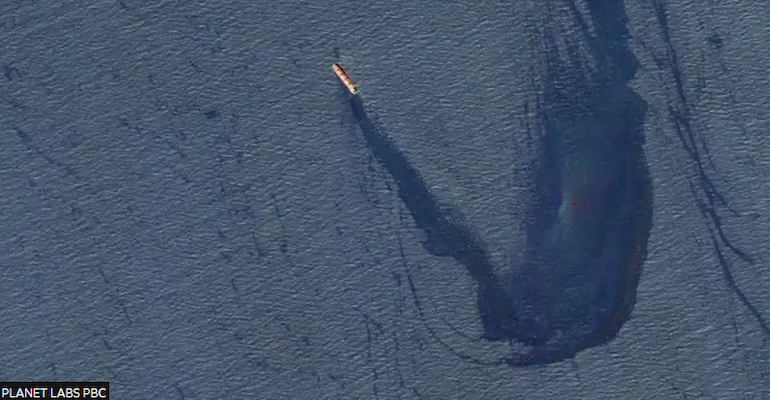More allied actions on Yemen’s Houthi Movement over the weekend was aimed at degrading the organisation’s ability to mount these attacks.
Reuters reported that US Defense Secretary Lloyd Austin said the latest wave of strikes were meant “to further disrupt and degrade the capabilities of the Iranian-backed Houthi militia”.
“We will continue to make clear to the Houthis that they will bear the consequences if they do not stop their illegal attacks, which harm Middle Eastern economies, cause environmental damage and disrupt the delivery of humanitarian aid to Yemen and other countries,” he added.
Persistent attacks on Houthi positions have failed to prevent attacks taking place, with the latest the attack on the 50,000dwt chemical tanker Torm Thor. According to US CENTCOM the destroyer USS Mason downed the missile before it could find its target.
The vessel is under the US Tanker Security Programme and is operating with an American crew under the US flag.
A Torm spokesman confirmed the attack and added that the management company Seabulk had reported the vessel and crew unharmed after the US Navy had “successfully safeguarded the vessel”.
VesselsValue AIS shows the tanker docked in Djibouti port, its original destination.
Apart from the anti-ship missile fired at the Torm Thor the Houthis launched up to three more drones at vessels in the region, none of which found their targets.
One missile that did find its target was fired at the UK bulk carrier Rubymar on 18 February, setting fire to the vessel, and leading the crew to abandon the ship.
CENTCOM have released pictures of an 18-mile oil slick emanating from Rubymar as a result of the attack and have said that the vessel is taking on water and is in danger of sinking, along with its cargo of fertiliser.
Meanwhile, a British Chamber of Commerce (BCC) survey of 1,000 UK companies revealed that 55% of exporters and 53% of manufacturers and business to consumer service companies have been impacted by the Red Sea regional disruptions.
Increased container hire costs of up to 300%, and delivery delays of up to four weeks had created cashflow difficulties and component shortages on production lines, said the BCC.
William Bain, Head of Trade Policy at the BCC, said: “There has been spare capacity in the shipping freight industry to respond to the difficulties, which has bought us some time. And recent ONS [office of National Statistics] data also indicates the impact has yet to filter through to the UK economy, with inflation holding steady in January.
“But our research suggests that the longer the current situation persists, the more likely it is that the cost pressures will start to build.”
Copyright © 2024. All rights reserved. Seatrade, a trading name of Informa Markets (UK) Limited.
Add Seatrade Maritime News to your Google News feed.  |

